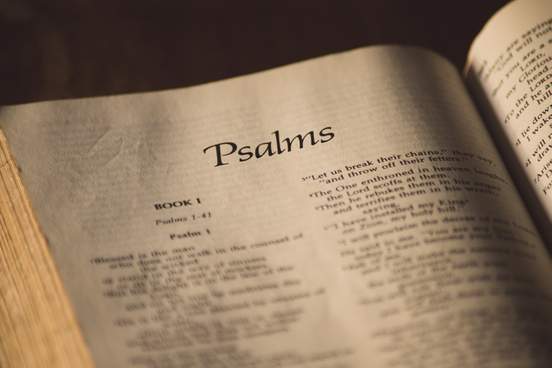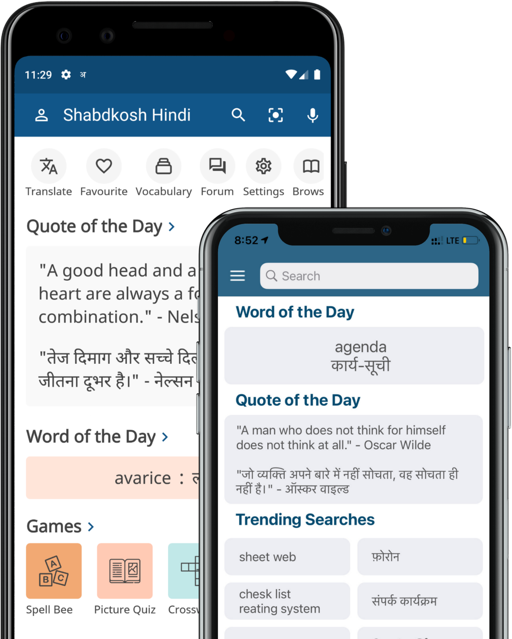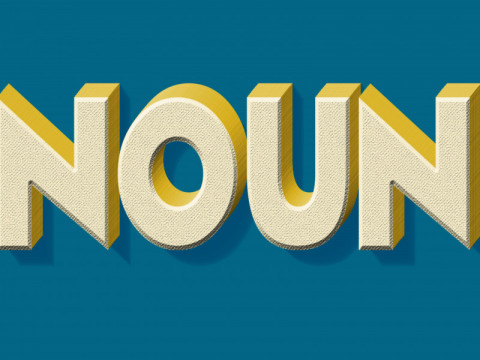- Pronunciation
- Try to pronounce
- Collections
- Translation

Learn how to pronounce Yacht
- Very difficult
Show more fewer Voices
IPA : jÉ’t jɒt
Have you finished your recording?

Phonetic spelling of Yacht
yot 2 ratings rating ratings Private yacht -1 rating rating ratings Obie Heaney y-acht -1 rating rating ratings Private
Thanks for contributing
You are not logged in..
Please Log in or Register or post as a guest
Meanings for Yacht
yacht captain 0 rating rating ratings Private travel in a yacht 0 rating rating ratings Theodore Hill It is a boat that is commonly used for cruising or racing. 0 rating rating ratings Jamaal Carter motor yacht 0 rating rating ratings Private
Synonyms for Yacht
Show more fewer Synonyms
Learn more about the word "Yacht" , its origin, alternative forms, and usage from Wiktionary.
Quiz on Yacht
{{ quiz.name }}
{{ quiz.questions_count }} Questions
Show more fewer Quiz
Collections on Yacht
-{{collection.uname}}
Show more fewer Collections
Wiki content for Yacht
Show more fewer Wiki
Examples of in a sentence

Show more fewer Sentence
Yacht should be in sentence
Translations of Yacht
Show more fewer Translation
Add Yacht details

Yacht pronunciation with meanings, synonyms, antonyms, translations, sentences and more
The right way to pronounce the color svart in swedish is, popular collections, celebrities, manchester united players list 2020, dutch vocabulary, popular quizzes.

Trending on HowToPronounce
- Sosthenes [en]
- kyushu [en]
- Mcintyre [en]
- Jenna ortega [en]
- Beaumaris [en]
- Naoise [en]
- ikigai [en]
- Farxiga [en]
- Newcastle [en]
- Cap cut [en]
- arthur [en]
Word of the day
Latest word submissions, recently viewed words, flag word/pronunciation, create a quiz.
- Dictionaries home
- American English
- Collocations
- German-English
- Grammar home
- Practical English Usage
- Learn & Practise Grammar (Beta)
- Word Lists home
- My Word Lists
- Recent additions
- Resources home
- Text Checker
Pronunciation Guide (English/Academic Dictionaries)
This guide will help you to understand and use the pronunciation symbols found in the Oxford Advanced Learner's Dictionary and the Oxford Learner's Dictionary of Academic English .
| Phonetic | --> | |
|---|---|---|
| p | pen | /pen/ |
| b | bad | /bæd/ |
| t | tea | /tiː/ |
| d | did | /dɪd/ |
| k | cat | /kæt/ |
| ɡ | get | /ɡet/ |
| tʃ | chain | /tʃeɪn/ |
| dʒ | jam | /dʒæm/ |
| f | fall | /fɔːl/ |
| v | van | /væn/ |
| θ | thin | /θɪn/ |
| ð | this | /ðɪs/ |
| s | see | /siː/ |
| z | zoo | /zuː/ |
| ʃ | shoe | /ʃuː/ |
| ʒ | vision | /ˈvɪʒn/ |
| h | hat | /hæt/ |
| m | man | /mæn/ |
| n | now | /naʊ/ |
| ŋ | sing | /sɪŋ/ |
| l | leg | /leɡ/ |
| r | red | /red/ |
| j | yes | /jes/ |
| w | wet | /wet/ |
The symbol (r) indicates that British pronunciation will have /r/ only if a vowel sound follows directly at the beginning of the next word, as in far away ; otherwise the /r/ is omitted. For American English, all the /r/ sounds should be pronounced.
/x/ represents a fricative sound as in /lɒx/ for Scottish loch , Irish lough .
Vowels and diphthongs
| iː | see | /siː/ |
| i | happy | /ˈhæpi/ |
| ɪ | sit | /sɪt/ |
| e | bed | /bed/ |
| æ | cat | /kæt/ |
| ɑː | father | /ˈfɑːðə(r)/ |
| ɒ | got | /ɡɒt/ |
| ɔː | saw | /sɔː/ |
| ʊ | put | /pʊt/ |
| u | actual | /ˈæktʃuəl/ |
| uː | too | /tuː/ |
| ʌ | cup | /kʌp/ |
| ɜː | fur | /fɜː(r)/ |
| ə | about | /əˈbaʊt/ |
| eɪ | say | /seɪ/ |
| əʊ | go | /ɡəʊ/ |
| aɪ | my | /maɪ/ |
| ɔɪ | boy | /bɔɪ/ |
| aʊ | now | /naʊ/ |
| ɪə | near | /nɪə(r)/ |
| eə | hair | /heə(r)/ |
| ʊə | pure | /pjʊə(r)/ |
Nasalized vowels, marked with / ˜ /, may be retained in certain words taken from French, as in penchant / ˈpɒ̃ʃɒ̃ / .
While represented by the same symbols in the dictionary, some vowels and diphthongs differ in quality between British and American English.
Pronunciation in the dictionary
The pronunciations given are those of younger speakers of ‘mainstream’ or ‘unmarked’ Received Pronunciation (British English) and ‘General’ or ‘Network’ American (American English). These models represent accents that are widely taught and easily recognized as British or American. They enable clear communication, are not old-fashioned or strongly regional, and are acceptable in formal and informal situations.
Pronunciations given between slashes /ˌlaɪk ˈðɪs/ are transcribed broadly, using a phonemic system. This means that symbols from the International Phonetic Alphabet are used to represent the sounds and features that distinguish one word from another in English. If the symbols are treated simply as sounds the speaker will be clearly understood — words such as cap /kæp/ and cup /kʌp/ will not be confused. The more advanced learner will understand that these symbols (phonemes) represent groups of related English sounds (allophones), and that the choice of symbols is guided by a long tradition of teaching and representing English pronunciation in this way.
The broad approach to transcription is accompanied by a selective approach to variant pronunciations. For example, the transcriptions make clear that the vowel /ɒ/ occurs only in British English, with American pronunciations usually having /ɔː/ or /ɑː/ instead. For these words there is some variation between /ɔː/ and /ɑː/ among speakers of American English, but only one such pronunciation is given.
Some variant pronunciations are represented by the special use of /i/ and /u/ (without a length mark /ː/ ). /i/ represents a weak vowel that can be sounded either as /iː/ or /ɪ/ or a compromise between them. The sequence /iə/ can be pronounced /jə/ , so union can be /ˈjuːniən/ or /ˈjuːnjən/ . In the same way /u/ represents a weak vowel between /uː/ and /ʊ/ . If followed by a consonant sound it can be pronounced as /ə/ , and the sequence /uə/ can be pronounced /wə/ , as in actual /ˈæktʃuəl, ˈæktʃwəl/ .
Further information about a pronunciation may be given in square brackets [ˈlaɪk ˈðɪs] , referring more specifically to sounds on the IPA chart . This narrow transcription is useful for representing pronunciations or sounds that are not British or American, for example the East African pronunciation [ˈboma] given at boma .
Allophones can be demonstrated by looking at the /t/ phoneme. In addition to [t] , the /t/ phoneme also contains tap [ɾ] and glottal stop [ʔ] sounds, which are used in certain contexts. The [ɾ] tap sound is very much like the /d/ in rider . It is widely used by American speakers when the /t/ is between two vowels and the second vowel is not stressed, as in writer . Both British and American speakers sometimes use the glottal stop [ʔ] (a momentary tight closure of the vocal cords) for the /t/ in words like football /ˈfʊtbɔːl/ and button /ˈbʌtn/ . Use of the glottal stop for /t/ in these positions is more common and more widely accepted than its use between vowels, as in water .
Such considerations are not limited to the /t/ phoneme. For example, the /l/ phoneme encompasses a clear [l] sound for words such as like /laɪk/ (where the /l/ is before or between vowels) and a dark [ɫ] sound for other positions, as in full /fʊl/ or milk /mɪlk/ . The sound files that accompany our phonemic transcriptions are intended to supplement the phonemic transcriptions and demonstrate such detail.
Syllabic consonants
The sounds /l/ and /n/ can often be syllabic — that is, they can form a syllable by themselves. They can be thought of as representing a sequence of [ ə l] or [ ə n] . There is a syllabic /l/ at the end of final /ˈfaɪnl/ , but for clarity the schwa /ə/ is shown in the transcription of finally /ˈfaɪnəli/ so that it is not confused with finely /ˈfaɪnli/ .
Weak and strong forms
Some pronunciations are labelled as strong or weak forms. The first pronunciation given usually represents the one most commonly used, but where a strong form is indicated it should be used when the word is stressed. A strong form is also usually used when the word is at the end of a sentence. For example:
- Can /kən/ you help?
- I’ll help if I can /kæn/ .
Stress is very important in English — it can be used to distinguish the meaning of similar-sounding words, compounds, phrasal verbs and idioms. The stress patterns indicated in our dictionaries will enable the learner to sound natural and clearly communicate their intended meaning.
The mark /ˈ/ shows the main stress — compare able /ˈeɪbl/ , stressed on the first syllable, and ability /əˈbɪləti/ , stressed on the second. A stressed syllable is relatively loud, long in duration, said clearly and distinctly, and made noticeable by the pitch of the voice. A stressed syllable does not usually contain the weak vowels /ə/ , /i/ or /u/ .
Longer transcriptions may have one or more secondary stresses before the main stress. These are marked with /ˌ/ as in abbreviation /əˌbriːviˈeɪʃn/ and agricultural /ˌæɡrɪˈkʌltʃərəl/ . They feel like beats in a rhythm leading up to the main stress. Weak stresses after the main stress can sometimes be heard, but they are not marked in our dictionaries.
A word or compound that has two stresses in its dictionary form may show a shift of stress when used in a phrase. For example, the adjective ˌwell-ˈknown has the main stress on known , but in the phrase ˌwell-known ˈauthor the main stress is shifted to the noun that follows.
Further reading
You can find a fuller discussion of the way pronunciation is indicated in the Oxford Advanced Learner’s Dictionary here .
Why does English have so many silent letters?

Was this all a joke?
You could be excused for thinking that much of English pronunciation was invented by a trickster god, one with a particularly cruel streak. After all, how else could we have come to a place where through doesn’t rhyme with though , enough doesn’t rhyme with lough , and cough doesn’t rhyme with hiccough ? We’re happy to tell you that there was no trickster god involved: there are reasons for why things are the way they are. Read on, and we’ll explain one of the great mysteries of our language: why so many of the letters seem to be just sitting around doing no work.

Some letters are silent in English because they are part of sound combinations that are so uncommon that English speakers ultimately resist pronouncing them. Our language is a glutton, and it has taken words from an enormous number of other languages. Since we have words borrowed from languages that have different sound patterns, this results in English speakers pronouncing the words differently than in their languages of origin.
That’s why the m is silent in mnemonic , a word meaning “assisting memory” or “relating to memory.” Mnemonic came to English from Greek through Latin during the 1600s, when many words of Classical origin were introduced by scholarly writers.
It is documented that the m was pronounced before the n as recently as the late 1800s, and has since dropped away.
There are very few words in English that begin with ¬ mn , and most of them are rare words that share the ultimate Greek root of the word meaning “to remember,” including mneme (pronounced /NEE-mee/), mnestic , mnemotechnical , and the name of the Greek goddess of memory, Mnemosyne .

psychology, psalm, pseudo
There are thousands of English words with Greek roots, and most of these begin in a manner that looks pretty reasonable to many users of English (think of words beginning with anti , like antipathy ). However, there are others from Greek which begin with a pair (or more!) of consonants that English does not use so often. One of the more common cases of this is the combination ps , seen in words like psalm , psalter , and pseudo (which comes from the Greek word meaning “to lie” or “to cheat”).
Psychology and the words related to it are the most frequently encountered of these words, which are pronounced with an /s/ sound—the p is silent in English. In German and French, the p is pronounced, however, and sounded just before the s , and over a hundred years ago the editor of the Oxford English Dictionary made it known that he thought we should restore the /p/ in English pronunciation, too.
His recommendations were ignored.

pneumatic, pneumonia
Another silent p is found immediately before the letter n in words like pneumatic and pneumonia .
These words came to English through Latin from the Greek word meaning “wind,” “breath,” “air,” or “spirit,” pneumatic means “relating to or using air” (such as tires on a car) and pneumonia refers to a disease of the lungs. Most of the English words you come across that begin with pneu - are going to directly relate to air (especially in medical or scientific contexts), but every once in a while one will sneak in with a slightly different type of meaning, as with pneumatology ("the study of spiritual beings or phenomena").
For words spelled with this pattern, the p is still pronounced in modern French.

yacht, night, light
Yacht came to English from Dutch, and the Dutch pronounce the ch with a rasping sound from the back of the throat, a sound heard in German words like buch (“book”) and Scots words like loch (“lake”).
Linguists use the term velar fricative to describe this sound, with velar from the Latin word for “curtain” meaning the soft palate or the flap at the back of the roof of the mouth, and fricative from the Latin word meaning “to rub.” Since this sound isn’t part of conventional English phonetics today, the ch has become silent over time.
The same thing can be said for words that developed directly from Old English and are spelled with what is now a silent gh , like light, fright, night , and sight , which were originally pronounced with that raspy back-of-the-throat sound. The now-silent ch and gh in these words in fact represent the same former pronunciation, transcribed in different ways. In fact, the Dutch and German ancestors of sight and light and right were spelled with ch rather than gh .

Perhaps the oddest-looking collection of consonants at the beginning of an English word is the strange chth in chthonic , pronounced /THON-ik/, which comes from the Greek word meaning “earth” or “world” and is a fancy way to say “relating to the underworld” or “infernal.”
In Greek mythology, it referred to the realm of the dead, where spirits would reside in the afterlife, overseen by Hades, king of the underworld (and the underworld itself was sometimes called Hades ). Like the now-silent ch in yacht , the ch , originally produced as a rasping sound from the back of the throat, has vanished in modern English.
If you really like using this word, but think that it’s kind of weird that the first C gets all the attention while the C that comes at the end does all the actual work, you can instead use chthonian , which means the same thing.

Chutzpah was defined in jocular fashion by Leo Rosten in his 1968 book The Joys of Yiddish with this: “Chutzpah is that quality enshrined in a man who, having killed his mother and father, throws himself on the mercy of the court because he is an orphan.” Being a dictionary, we don’t really do jocular; our definition is “supreme self-confidence,” or “nerve, gall .”
One of the many words English has borrowed from Yiddish, chutzpah is spelled with the ch that is now usually pronounced as /h/, making the c silent. The ch stood for the rasping sound from the back of the throat that exists in many languages, but not English, so it has dropped away.

calm, palm, talk
We mostly don’t hear the L in words like palm and calm , and this is also a pronunciation that has changed. The “dark” sound of the letter L is one that can change the sound of the vowel that comes before it as it melts into the m . This is why the vowel sounds are different in word pairs like calm and cat and talk and tack .
(If you want to hear the difference between a "light" and "dark" L, say the word lull . The initial /L/ is "light", pronounced at the front of the mouth, while the final /L/ is "dark", spoken by raising the back of the tongue slightly.)
This is the same process that causes the sound of L to become a vowel sound in some Cockney accents, when a word like trouble is pronounced /TRUH-boe/ or in some pronunciations of help that don’t have a clear L sound.

should, would, could
Yes, the L in should and would used to be pronounced (but no, you are not making a mistake in not pronouncing it now). These words would have rhymed with gold and told (consider how we pronounce shoulder and boulder ). Accounts by language commentators from the 1500s show that these Ls were pronounced in refined speech, but then dropped during the following century.
It seems likely that could didn’t have the L in either spelling or pronunciation; notice that its root, can doesn’t have an L whereas shall and will (the roots of should and would ) do. The thought is that the L in could was later added by analogy—rightly or wrongly—to make it better match with would and should .

knife, knight, gnaw
The basic rule is: “word + time = change.” The initial kn or gn sounds in words like knife, knight , and gnaw were pronounced several hundred years ago. Over time, the sound clusters have simplified into the single /n/ sound that we know (ahem) today. There isn’t necessarily a reason or any logic attached to all of these changes; in fact, if the spellings of these words didn’t fossilize the original way that they were pronounced, we wouldn’t have any reason to think about this kind of phonetic change.

wrap, write
Once upon a time the W in words like wrap and write was pronounced. Today we don’t hear it, and this time the reason is partially anatomical and not just phonetic (when we say the reason you don’t hear this is anatomical it is because of the shape of your lips, and not of your ears; your ears are just fine).
When you make the /r/ sound in modern English, your lips protrude a bit (say “ruh”) just as they do when you pronounce a /w/ sound (say “wuh”). Since these two sounds are made in ways that have physically similar lip positions and sounds that are difficult to distinguish when you say one right after the other, they eventually merged together.

soften, listen, often
The /t/ in words like soften, hasten , and fasten was originally pronounced, after the -en was added to the words soft, haste , and fast . Listen is a bit different, since it comes from from the Middle English word listnen , and evidence suggests that Middle English speakers wouldn’t pronounce /t/ when it was stuck between /s/ and /n/. (This may seem like a lot of history for a simple spelling explainer, but isn’t it nice to know that people who spoke Middle English many hundreds of years ago had to wrestle with tricky silent letters as well?)
Is the t in these words always silent, though? The t in often is in fact sometimes pronounced. Like the others in this category, it had been pronounced initially, and, also like the others, we hear the /t/ in the word’s root oft , which is now archaic for most of the senses of often , but is still used in compound adjectives like oft-repeated and oft-quoted . Ofttimes and oftentimes also have that archaic flavor but are still in active use. After the -en suffix was added to oft , the /t/ fell away in pronunciation, but remained in the spelling.
But in this case, the /t/ came back via a spelling-influenced pronunciation in the 1600s, as both literacy and printing expanded rapidly in England. There is evidence that Queen Elizabeth herself did not pronounce the /t/, resulting in the establishment of the prestige pronunciation for often that remains to this day (although pronouncing the t in often is by now a standard choice).

receipt, debt, indict
An artificial evolution is visible in the silent letters of words like receipt, debt , and indict . These words entered English from French in the medieval period, but later scholars recognized their Latin origins and stuck in the missing p, b , and c , just to make the etymological relationship completely explicit. The way we pronounce these words to this day reflects their French heritage (while their spelling reflects their more distant Latin roots). Other silent letters that scholars have snuck in to help English show off its Latin roots include the b in doubt and the l in balm .

Word of the Day
See Definitions and Examples »
Get Word of the Day daily email!
Games & Quizzes

Spelling & Pronunciation
More commonly misspelled words, how to pronounce 'often', absent letters that are heard anyway, more commonly mispronounced words, the many plurals of 'octopus', grammar & usage, every letter is silent, sometimes: a-z list of examples, how to use em dashes (—), en dashes (–) , and hyphens (-), the difference between 'i.e.' and 'e.g.', plural and possessive names: a guide, 31 useful rhetorical devices, pilfer: how to play and win, 8 words with fascinating histories, flower etymologies for your spring garden, 8 words for lesser-known musical instruments, it's a scorcher words for the summer heat.
- Cambridge Dictionary +Plus
Meaning of yacht in English
Your browser doesn't support HTML5 audio
- They spent their annual vacation on a chartered yacht in the Caribbean .
- He spent three days adrift on his yacht.
- His eyes were fixed on the distant yacht.
- If they can afford a yacht, they must be rolling in it.
- She sailed around the world single-handed in her yacht.
- cabin cruiser
- dragon boat
yacht | Intermediate English
Examples of yacht, collocations with yacht.
These are words often used in combination with yacht .
Click on a collocation to see more examples of it.
Translations of yacht
Get a quick, free translation!

Word of the Day
a day that you spend somewhere that is not your home or usual place of work

It’s not really my thing (How to say you don’t like something)

Learn more with +Plus
- Recent and Recommended {{#preferredDictionaries}} {{name}} {{/preferredDictionaries}}
- Definitions Clear explanations of natural written and spoken English English Learner’s Dictionary Essential British English Essential American English
- Grammar and thesaurus Usage explanations of natural written and spoken English Grammar Thesaurus
- Pronunciation British and American pronunciations with audio English Pronunciation
- English–Chinese (Simplified) Chinese (Simplified)–English
- English–Chinese (Traditional) Chinese (Traditional)–English
- English–Dutch Dutch–English
- English–French French–English
- English–German German–English
- English–Indonesian Indonesian–English
- English–Italian Italian–English
- English–Japanese Japanese–English
- English–Norwegian Norwegian–English
- English–Polish Polish–English
- English–Portuguese Portuguese–English
- English–Spanish Spanish–English
- English–Swedish Swedish–English
- Dictionary +Plus Word Lists
- English Noun
- Intermediate Noun
- Collocations
- Translations
- All translations
To add yacht to a word list please sign up or log in.
Add yacht to one of your lists below, or create a new one.
{{message}}
Something went wrong.
There was a problem sending your report.
Definition of 'yacht'

It seems that your browser is blocking this video content.
To access it, add this site to the exceptions or modify your security settings, then refresh this page.

yacht in American English
Yacht in british english, examples of 'yacht' in a sentence yacht, trends of yacht.
View usage over: Since Exist Last 10 years Last 50 years Last 100 years Last 300 years
Browse alphabetically yacht
- Yablonovy Mountains
- Yablonovyy Range
- yacht chair
- yacht charter
- All ENGLISH words that begin with 'Y'
Related terms of yacht
- motor yacht
- royal yacht
- View more related words

Wordle Helper

Scrabble Tools
Quick word challenge
Quiz Review
Score: 0 / 5

- Access the entire site, including the Easy Learning Grammar , and our language quizzes.
- Customize your language settings. (Unregistered users can only access the International English interface for some pages.)
- Submit new words and phrases to the dictionary.
- Benefit from an increased character limit in our Translator tool.
- Receive our weekly newsletter with the latest news, exclusive content, and offers.
- Be the first to enjoy new tools and features.
- It is easy and completely free !

- Start Learning
- Free Resources
- Manage Subscriptions
- Classroom Login
Native English Speak: Yacht Pronunciation Made Easy With Effective Tips
- LLS English
- October 23, 2023
- No Comments
Are you a non-native English speaker struggling with the pronunciation of the word “yacht”? You’re not alone! The pronunciation of this word can be tricky for many English learners. But fear not, as in this blog post, we’ll break down the syllables and sounds of yacht pronunciation to help you say it correctly and with confidence. So let’s get started and make yacht pronunciation easy with these effective tips!
Yacht Pronunciation – The Fundamentals
Are you ready to tackle the fundamentals of yacht pronunciation? Let’s dive right in!
First, let’s break down the word “yacht” into its individual syllables: “yacht” is pronounced as one syllable. It’s important to note that the ‘y’ at the beginning of the word is pronounced like the letter ‘y’ in the alphabet.
Now let’s focus on the sounds of each individual letter in “yacht.” The ‘y’ sound is a consonant sound, similar to the beginning sound in “yellow.” The ‘a’ sound in “yacht” is pronounced as a long ‘a’ sound, similar to the sound in the word “lake.” The ‘ch’ sound is a combination of two consonant sounds, ‘t’ and ‘sh’, which creates a soft and subtle ‘ch’ sound.
To practice yacht pronunciation, try saying the word slowly and exaggerate each sound. Repeat it multiple times until you feel confident in your pronunciation. You can also use online pronunciation resources or language learning apps to hear the correct pronunciation.
Now that you have mastered the fundamentals of yacht pronunciation, you can confidently use this word in conversations and impress others with your English skills. Keep practicing and soon enough, yacht pronunciation will become second nature to you!
How to say you are not feeling well professionally at work
Yacht Pronunciation – Syllables and Sounds
Now that we’ve covered the fundamentals of yacht pronunciation, let’s dive deeper into breaking down the syllables and sounds of this word. Understanding the syllables and sounds will further enhance your ability to pronounce it correctly.
As we mentioned earlier, “yacht” is pronounced as one syllable. This means that you should not pause or break the word into separate sounds. Instead, pronounce it smoothly as a single unit.
To dissect the sounds, let’s focus on the individual letters in “yacht”. The ‘y’ at the beginning of the word is pronounced like the letter ‘y’ in the alphabet, making a consonant sound similar to the beginning sound in “yellow”. Next, the ‘a’ in “yacht” is pronounced as a long ‘a’ sound, just like in the word “lake”. Lastly, the ‘ch’ in “yacht” is a combination of two consonant sounds, ‘t’ and ‘sh’, resulting in a soft and subtle ‘ch’ sound.
To practice, say “yacht” slowly and emphasize each sound. Repeat it multiple times until you feel comfortable and confident in your pronunciation. You can also use online resources or language learning apps to hear the correct pronunciation and further refine your skills.
Now that you have a thorough understanding of the syllables and sounds of yacht pronunciation, you’re well on your way to mastering this word with ease. Keep practicing, and soon enough, you’ll be able to confidently use it in conversations and impress others with your English skills.
‘ Yacht ‘ in Context: Sample Sentences and Usage
Now that you have mastered the pronunciation of “yacht,” let’s explore some sample sentences and usage of this word in context. This will help you understand how to incorporate it into your own conversations.
1. “We took a luxurious yacht trip along the Mediterranean coast.” – In this sentence, “yacht” is used to describe a type of boat or vessel. It implies a sense of luxury and elegance.
2. “He invited us to join him on his yacht for a weekend getaway.” – Here, “yacht” is used to refer to a personal or private boat used for leisure and relaxation.
3. “The couple chartered a yacht for their honeymoon cruise. ” – In this example, “yacht” is used as a verb, indicating the action of renting or hiring a boat for a specific period of time.
4. “The yacht sailed smoothly through the calm waters, offering breathtaking views.” – This sentence showcases the action and movement of a yacht, emphasizing its graceful navigation and picturesque surroundings.
By incorporating these sample sentences into your language practice, you can not only master the pronunciation of “yacht” but also understand how to use it accurately in various contexts. So keep practicing, and soon enough, you’ll be able to effortlessly incorporate this word into your English conversations.
Yacht Pronunciation Common Mistakes
While yacht pronunciation can be challenging for non-native English speakers, there are a few common mistakes that you should avoid to ensure you pronounce it correctly.
One common mistake is misplacing the stress in the word. The stress in “yacht” falls on the first syllable, so make sure to emphasize the ‘y’ sound at the beginning of the word. Avoid placing stress on the second syllable or any other syllable.
Another mistake to avoid is pronouncing the ‘a’ in “yacht” as a short ‘a’ sound, like the ‘a’ in “cat.” Remember that the ‘a’ in “yacht” is pronounced as a long ‘a’ sound, similar to the ‘a’ in “lake.” Additionally, be careful not to pronounce the ‘ch’ in “yacht” as a hard ‘ch’ sound, like in “church.” Instead, remember that it is a soft and subtle ‘ch’ sound, created by combining the ‘t’ and ‘sh’ sounds.
To ensure you are not making these mistakes, practice saying “yacht” slowly and exaggerate each sound. Repeat it multiple times until you feel comfortable with the correct pronunciation. By avoiding these common mistakes and practicing consistently, you’ll soon be able to confidently pronounce “yacht” like a native English speaker.

How to use Learn Laugh Speak to Speak English
Learn Laugh Speak is a full digital platform designed to enhance your English skills in reading, writing, speaking, and listening. With 33,000 lessons and 12 levels, you can create an account and start learning English at your exact level.
The platform provides instant corrections to help you improve your pronunciation and grammar. Whether you’re a beginner or an advanced learner, Learn Laugh Speak has the resources and tools you need to speak English confidently and accurately. Start your English journey today and see how Learn Laugh Speak can help you reach your language goals!

Leave a Reply Cancel reply
Your email address will not be published. Required fields are marked *
Save my name, email, and website in this browser for the next time I comment.
Sign me up for the newsletter!
LEARN LAUGH LIBRARY
Username or email address *
Password *
Remember me Log in
Lost your password?
How to Pronounce Yacht?
Yacht pronunciation in British English
Yacht pronunciation in Australian English
Yacht pronunciation in American English
Browse nearby or related words
Popular words, tips to improve your pronunciation:.
- Listen to yourself
- Focus on one accent
- Pay attention to intonation

English Hindi Dictionary | अंग्रेज़ी हिन्दी शब्दकोश
The keyboard uses the ISCII layout developed by the Government of India. It is also used in Windows, Apple and other systems. There is a base layout, and an alternative layout when the Shift key is pressed. If you have any questions about it, please contact us.
- Pronunciation
- Word Network
- Conjugation
yacht - How to pronounce yacht in English
You can listen to the pronunciation of the word "yacht" by clicking the "play button" below. The audio signal is displayed to help you "see" how the pronunciation audio looks like. You can hear the audio and see the cursor moving across the signal below. Once you are familiar with how the word "yacht" sounds, you can record it yourself and see the signal of your voice below. We provide pronunciation in multiple regional accents for many thousands of words and you can choose which one you would like to learn by selecting the appropriate audio icon given.
You can record your own pronunciation of the word "yacht" by clicking the "record or microphone button" below. Once the recording starts, you can speak the word and see how the signal is generated. Once done, click on the "stop" button. After the recording has completed, you can play your own recording or play both your voice and the already recorded pronunciation. You can repeat the process until you are able to pronounce the word "yacht" just like how it is shown above. In addition, you can do this exercise for other accents also and learn the word "yacht" in different regional pronunciation accents.
Pronunciation Dictionary - English Pronunciation of "yacht"
Learn how to pronounce and speak "yacht" easily. Listen to the spoken audio pronunciation of "yacht", record your own pronunciation using microphone and then compare with the recorded pronunciation. With the record and play feature, you can not only hear the English pronunciation of "yacht", but also learn how to say "yacht" in English on your own.
SHABDKOSH Apps

Ad-free experience & much more

Types of nouns

English tenses

Reasons to learn an Indian language
What is yacht meaning in Hindi ?
What is another word for yacht ?
Sentences with the word yacht
Words that rhyme with yacht
English Hindi Translator
Words starting with
Share with friends, vocabulary lists.
We provide a facility to save words in lists.
Basic Word Lists
Custom word lists.
You can create your own lists to words based on topics.
Login/Register
To manage lists, a member account is necessary.
Social Sign-in
Translation

If you want to access full services of shabdkosh.com
Please help Us by disabling your ad blockers.
or try our SHABDKOSH Premium for ads free experience.
Steps to disable Ads Blockers.
- Click on ad blocker extension icon from browser's toolbar.
- Choose the option that disables or pauses Ad blocker on this page.
- Refresh the page.
Spelling Bee
Hear the words in multiple accents and then enter the spelling. The games gets challenging as you succeed and gets easier if you find the words not so easy.
The game will show the clue or a hint to describe the word which you have to guess. It’s our way of making the classic hangman game!
Antonym Match
Choose the right opposite word from a choice of four possible words. We have thousand of antonym words to play!
View this site in -
Language resources, get our apps, keep in touch.
- © 2024 SHABDKOSH.COM, All Rights Reserved.
- Terms of Use
- Privacy Policy
Liked Words
Shabdkosh Premium
Try SHABDKOSH Premium and get
- Ad free experience.
- No limit on translation.
- Bilingual synonyms translations.
- Access to all Vocabulary Lists and Quizzes.
- Copy meanings.
Already a Premium user?
Words and phrases
Personal account.
- Access or purchase personal subscriptions
- Get our newsletter
- Save searches
- Set display preferences
Institutional access
Sign in with library card
Sign in with username / password
Recommend to your librarian
Institutional account management
Sign in as administrator on Oxford Academic
yacht broker noun
- Hide all quotations
What does the noun yacht broker mean?
There is one meaning in OED's entry for the noun yacht broker . See ‘Meaning & use’ for definition, usage, and quotation evidence.
Entry status
OED is undergoing a continuous programme of revision to modernize and improve definitions. This entry has not yet been fully revised.
How common is the noun yacht broker ?
| 1890 | 0.0008 |
| 1900 | 0.0016 |
| 1910 | 0.0022 |
| 1920 | 0.0026 |
| 1930 | 0.0033 |
| 1940 | 0.0039 |
| 1950 | 0.0049 |
| 1960 | 0.0056 |
| 1970 | 0.006 |
| 1980 | 0.0063 |
| 1990 | 0.0064 |
| 2000 | 0.0067 |
| 2010 | 0.0072 |
Where does the noun yacht broker come from?
Earliest known use
The earliest known use of the noun yacht broker is in the 1880s.
OED's earliest evidence for yacht broker is from 1882, in Yachting Quarterly .
yacht broker is formed within English, by compounding.
Etymons: yacht n. , broker n.
Nearby entries
- yabble, v. 1808–
- yabbler, n. 1901–
- yabby, n. 1887–
- yabby, v. 1941–
- yabbying, n. 1934–
- yabu, n. 1753–
- yacca, n. 1843–
- yacht, n. a1584–
- yacht, v. 1836–
- yacht basin, n. 1929–
- yacht broker, n. 1882–
- yachtdom, n. 1901–
- yachter, n. 1828–
- yachtery, n. 1861–
- yachtian, n. 1842–
- yachtie, n. 1874–
- yachting, n. 1836–
- yachting, adj. 1847–
- yachtist, n. 1895–
- yachtling, n. 1872–
- yachtman, n. 1820–
Thank you for visiting Oxford English Dictionary
To continue reading, please sign in below or purchase a subscription. After purchasing, please sign in below to access the content.
Meaning & use
Entry history for yacht broker, n..
Originally published as part of the entry for yacht, n.
yacht, n. was first published in 1921; not yet revised.
Revision of the OED is a long-term project. Entries in oed.com which have not been revised may include:
- corrections and revisions to definitions, pronunciation, etymology, headwords, variant spellings, quotations, and dates;
- new senses, phrases, and quotations which have been added in subsequent print and online updates.
Earlier versions of this entry were published in:
OED First Edition (1921)
- Find out more
OED Second Edition (1989)
- View yacht, n. in OED Second Edition
Please submit your feedback for yacht broker, n.
Please include your email address if you are happy to be contacted about your feedback. OUP will not use this email address for any other purpose.
Citation details
Factsheet for yacht broker, n., browse entry.

IMAGES
VIDEO
COMMENTS
Definition of yacht noun in Oxford Advanced Learner's Dictionary. Meaning, pronunciation, picture, example sentences, grammar, usage notes, synonyms and more.
YACHT pronunciation. How to say YACHT. Listen to the audio pronunciation in English. Learn more.
Learn how to pronounce "Yacht" in British and American English using the Oxford dictionary.This is created by recording the Oxford Dictionary website scree...
How to pronounce YACHT. How to say YACHT. Listen to the audio pronunciation in the Cambridge English Dictionary. Learn more.
corrections and revisions to definitions, pronunciation, etymology, headwords, variant spellings, quotations, and dates; new senses, phrases, and quotations which have been added in subsequent print and online updates. Revisions and additions of this kind were last incorporated into yacht, n. in July 2023.
YACHT definition: 1. a boat with sails and sometimes an engine, used for either racing or travelling on for pleasure…. Learn more.
yacht: [noun] any of various recreational watercraft: such as. a sailboat used for racing. a large usually motor-driven craft used for pleasure cruising.
How to say Yacht in English? Pronunciation of Yacht with 12 audio pronunciations, 8 synonyms, 4 meanings, 12 translations, 12 sentences and more for Yacht.
yes. /jes/. w. wet. /wet/. The symbol (r) indicates that British pronunciation will have /r/ only if a vowel sound follows directly at the beginning of the next word, as in far away; otherwise the /r/ is omitted. For American English, all the /r/ sounds should be pronounced. /x/ represents a fricative sound as in /lɒx/ for Scottish loch, Irish ...
British English pronunciation. American English: yɒt British English: jɒt. Word forms plural yachts. Example sentences including 'yacht'. His 36 ft yacht sank suddenly last summer. New from Collins.
This video shows you how to pronounce Yacht (yachting, pronunciation guide).Learn to say PROBLEMATIC WORDS better: https://www.youtube.com/watch?v=dyncGi5eWz...
Learn how to pronounce Yacht in English correctly with pronunciation and definition★ http://learn2pronounce.com ★Create your own flashcards by adding this vi...
yacht, night, light. Yacht came to English from Dutch, and the Dutch pronounce the ch with a rasping sound from the back of the throat, a sound heard in German words like buch ("book") and Scots words like loch ("lake"). Linguists use the term velar fricative to describe this sound, with velar from the Latin word for "curtain ...
YACHT meaning: 1. a boat with sails and sometimes an engine, used for either racing or travelling on for pleasure…. Learn more.
yacht in British English. (jɒt ) noun. 1. a vessel propelled by sail or power, used esp for pleasure cruising, racing, etc. 2. short for sand yacht, ice yacht. verb. 3. (intransitive) to sail or cruise in a yacht.
English pronunciation dictionary. y. yacht. What is the pronunciation of 'yacht' in English? en. volume_up. yacht = es. volume_up. navegar a vela.
The 'a' sound in "yacht" is pronounced as a long 'a' sound, similar to the sound in the word "lake.". The 'ch' sound is a combination of two consonant sounds, 't' and 'sh', which creates a soft and subtle 'ch' sound. To practice yacht pronunciation, try saying the word slowly and exaggerate each sound. Repeat it ...
yacht pronunciation. Learn how to say yacht in English. Listen free audio with natural accents.
1. Hear the pronunciation of yacht . You can listen to the pronunciation of the word "yacht" by clicking the "play button" below. The audio signal is displayed to help you "see" how the pronunciation audio looks like. You can hear the audio and see the cursor moving across the signal below.
yacht broker, n. meanings, etymology, pronunciation and more in the Oxford English Dictionary
We go behind the scenes to find out how pronunciation data is used in the Oxford Advanced Learner's Dictionary 10th edition to help learners to articulate th...